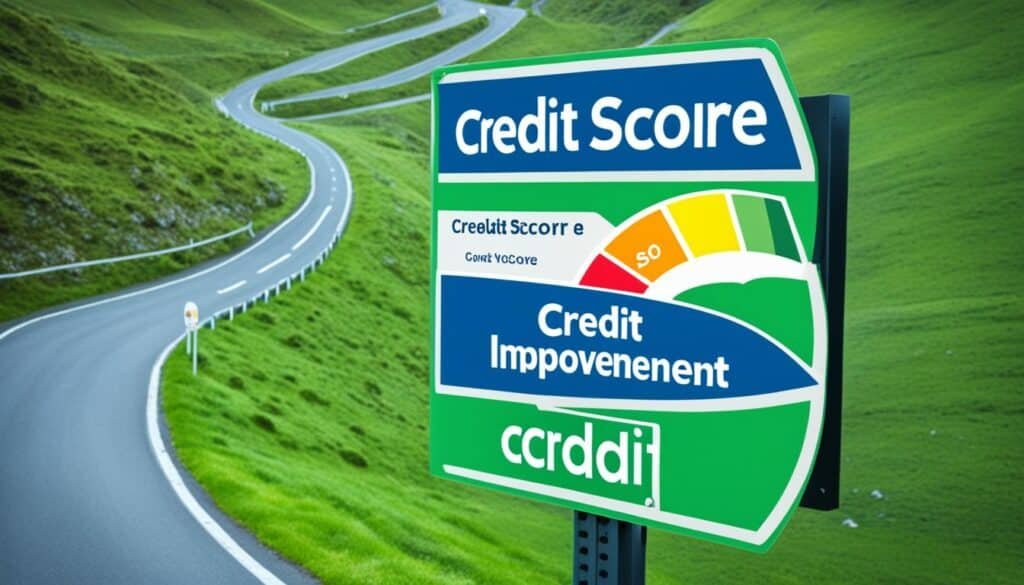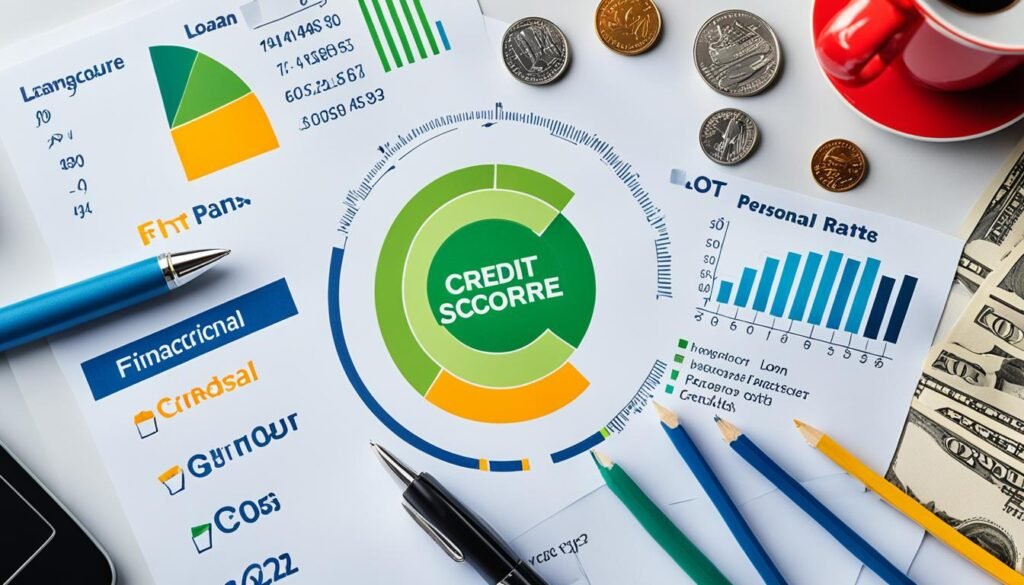Apply For Personal Loan Capital One Looking to apply for a personal loan with Capital One? While Capital One does not offer personal loans, there are alternative options available to help meet your financial needs. In this article, we will explore how to apply for a personal loan since Capital One doesn’t offer these loans and provide information on suitable alternatives.
Key Takeaways: Apply For Personal Loan Capital One
- Capital One does not offer personal loans directly.
- Explore other lenders and financial institutions for personal loan options.
- Consider alternatives such as credit cards, balance transfers, peer-to-peer lending companies, and cash advances.
- Your credit score plays a significant role in personal loan eligibility and terms.
- Take steps to improve your credit score for better chances of personal loan approval.
Can You Get a Personal Loan from Capital One?
When it comes to personal loans, Capital One does not offer this particular financial product. Instead, their main focus is on providing credit cards, auto loans, and banking services. While they may not have personal loans available, there are plenty of other lenders and financial institutions that do.
If you are in need of a personal loan, it’s important to explore alternative options outside of Capital One. This means researching and comparing different lenders to find the best fit for your needs and financial situation.
Although Capital One doesn’t offer personal loans, their other banking services and credit products can still be beneficial for your financial needs. It’s worth considering their credit cards or auto loan offerings if they align with your goals.
“While Capital One doesn’t provide personal loans, they offer a range of other financial products that can help meet your specific needs.” – Financial Expert
By understanding the loan application process at Capital One, you can better appreciate their offerings and determine whether their other products are suitable for your situation.
Capital One Loan Application Process
When applying for credit cards or auto loans with Capital One, the process typically involves:
- Completing an online application form with your personal information, income details, and any other required documents.
- Submitting your application for review.
- Wait for Capital One to assess your application, verify your details, and make a decision.
- If approved, you’ll receive further instructions on how to proceed, such as accepting the loan offer or receiving your credit card.
Please note that the loan application process may vary depending on the specific product you are applying for. It’s always essential to carefully review the terms and conditions provided by Capital One before making any decisions.
Capital One Loan Application Status
To check the status of your loan application with Capital One, you can follow these steps:
- Visit the Capital One website and navigate to the application status page.
- Enter the required information, such as your application reference number, Social Security number, or other identification details.
- Click on the “Check Status” or similar button to retrieve your application status.
It’s important to remember that personal loan application status may only be relevant if you have applied for a credit card or auto loan with Capital One, as they do not offer personal loans.
Remember, while Capital One may not provide personal loans, there are plenty of other lenders and financial institutions that do. It’s crucial to explore your options and compare offers to find the best personal loan that meets your needs.
Personal Loan Alternatives to Capital One
If you are considering a personal loan but cannot apply for one with Capital One, there are several alternative options available. These alternatives offer different advantages and considerations, so it’s important to research and compare them before making a decision.
Here are some personal loan alternatives to Capital One:
- Credit Cards: Utilizing credit cards can be an alternative to a personal loan. You can use your credit card for purchases or even take advantage of cash advances.
- Balance Transfers: If you have existing credit card debt, you can consider transferring the balance to a card with a lower interest rate or promotional offers.
- Peer-to-Peer Lending Companies: Peer-to-peer lending platforms connect individual lenders with borrowers. These platforms often offer competitive interest rates and flexible terms.
- Cash Advances: If you need immediate access to funds, you can consider cash advances. However, be aware that they often come with higher interest rates and additional fees.
Each alternative has its own unique features and suitability depending on your financial situation. It’s essential to carefully evaluate and compare these options to find the best fit for your needs.
Exploring personal loan alternatives allows you to find the right financial solution even if you can’t apply for a personal loan with Capital One. By considering these alternatives, you can overcome any limitations and obtain the funds you require.
Understanding Credit Scores and Personal Loan Eligibility

When applying for a personal loan, your credit score plays a significant role in determining your eligibility and loan terms. While there is no universal minimum credit score required for a personal loan, having a higher credit score can increase your chances of approval and getting better loan terms. Lenders may also consider factors such as your credit utilization ratio and debt-to-income ratio when evaluating your application.
Credit score: Your credit score is a numerical representation of your creditworthiness. It is calculated based on various factors such as your payment history, credit utilization, length of credit history, types of credit accounts, and recent credit inquiries. A higher credit score indicates a lower credit risk to lenders.
Minimum credit score: Although there is no specific minimum credit score required for personal loan eligibility, most lenders prefer borrowers with credit scores above 670. However, different lenders may have their own credit score requirements, so it’s essential to research and compare various lenders to find one that aligns with your credit profile.
Credit score requirements: Lenders often have their own credit score requirements for personal loans. Some lenders may be willing to work with borrowers who have lower credit scores but may charge higher interest rates or have stricter conditions. It’s crucial to review the credit score requirements of potential lenders before applying for a personal loan.
Credit utilization ratio: Your credit utilization ratio is the percentage of your available credit that you are currently using. It is a measure of how much debt you have compared to your available credit limits. Lenders consider a lower credit utilization ratio as a sign of responsible credit use and may view borrowers with lower ratios more favorably.
“Having a good credit score and maintaining a low credit utilization ratio can increase your chances of getting approved for a personal loan and securing favorable loan terms.” – Financial Expert
It’s essential to monitor your credit score regularly and take steps to improve it, such as making on-time payments, paying down debt, and avoiding opening too many new credit accounts. By understanding the role of credit scores and credit utilization ratios in personal loan eligibility, you can make informed financial decisions and increase your chances of getting approved for the loan you need.
Factors Affecting Personal Loan Eligibility
| Factors | Description |
|---|---|
| Credit Score | A numerical representation of your creditworthiness. Higher scores indicate lower credit risk. |
| Credit Utilization Ratio | The percentage of your available credit that you are currently using. Lower ratios are viewed positively by lenders. |
| Debt-to-Income Ratio | The ratio of your monthly debt payments to your monthly income. Lenders assess whether you can manage additional debt. |
| Payment History | The track record of your on-time payments and any previous delinquencies. Consistent, timely payments are favorable. |
| Length of Credit History | The duration of your credit accounts. Longer credit histories demonstrate stability and experience managing credit. |
| Type of Credit | The mix of credit accounts (e.g., credit cards, loans, mortgages). A varied credit mix can be viewed positively by lenders. |
| Recent Credit Inquiries | The number of times you have recently applied for new credit. Multiple inquiries can impact your credit score temporarily. |
How to Improve Your Credit Score for Personal Loan Approval

If you have a fair credit score and want to improve your chances of getting approved for a personal loan, there are steps you can take to improve your credit score. By implementing these strategies, you can strengthen your creditworthiness and demonstrate responsible credit use.
Make On-Time Payments
One of the most important factors in improving your credit score is making consistent, on-time payments. Late payments can have a negative impact on your credit history. Set up reminders or automatic payments to ensure you never miss a payment deadline.
Maintain a Low Credit Utilization Ratio
Credit utilization ratio refers to the percentage of your available credit that you are currently using. Keeping your credit utilization below 30% can help boost your credit score. For example, if you have a credit limit of $10,000, try to keep your outstanding balances below $3,000.
Limit Hard Inquiries
Hard inquiries occur when you apply for new credit, such as a personal loan. Each hard inquiry can lower your credit score temporarily. To improve your credit score, avoid applying for multiple loans or credit cards within a short period of time. Instead, carefully research your options and only apply for credit when necessary.
Regularly Monitor Your Credit
Monitoring your credit is crucial for identifying any errors or fraudulent activities that could be impacting your credit score. You can request a free copy of your credit report from each of the three major credit bureaus once per year. By reviewing your credit report regularly, you can address any inaccuracies and take steps to improve your credit score.
“Improving your credit score requires a consistent effort to demonstrate responsible credit use and financial management.”
– Financial Advisor, Jane Smith
By following these practices, you can steadily improve your credit score over time and increase your chances of getting approved for a personal loan.
| Ways to Improve Your Credit Score | Impact Level |
|---|---|
| Make on-time payments | High |
| Maintain a low credit utilization ratio | High |
| Avoid too many hard inquiries | Medium |
| Monitor your credit regularly | Medium |
| Use responsible credit practices | Low |
Applying for a Personal Loan with Fair Credit

While having fair credit may make it harder to get approved for a personal loan, it’s still possible to obtain one. Research different lenders and loan options to find one that suits your needs and offers fair credit loan options. Consider checking if you’re pre-qualified or pre-approved to avoid unnecessary hard inquiries. You may also want to explore the option of having a co-signer to improve your chances of approval.
Research Lenders and Loan Options
Start by researching lenders that specialize in personal loans for individuals with fair credit. Look for lenders who have flexible eligibility requirements and consider factors beyond just your credit score. Compare interest rates, fees, and repayment terms to find the best fit for your financial situation.
Pre-Qualification and Pre-Approval
Before submitting a loan application, consider checking if you’re pre-qualified or pre-approved by the lender. This process usually involves a soft credit check, which does not impact your credit score. Being pre-qualified or pre-approved can give you a better idea of your chances of approval and may help you avoid unnecessary hard inquiries on your credit report.
The Role of a Co-Signer
If you’re struggling to get approved for a personal loan with fair credit, you may want to consider having a co-signer. A co-signer is someone with good credit who agrees to be responsible for the loan if you default. Having a co-signer can help reassure lenders that the loan will be repaid and improve your chances of approval.
By researching lenders, exploring pre-qualification options, and considering a co-signer, you can increase your chances of getting approved for a personal loan, even with fair credit. Remember to compare interest rates and loan terms to ensure you’re getting the best possible offer.
Comparison of Personal Loan Lenders for Fair Credit
| Lender | Minimum Credit Score | Interest Rates | Loan Amounts | Loan Terms |
|---|---|---|---|---|
| ABC Bank | Fair (650+) | 7.99% – 18.99% | $1,000 – $35,000 | 1 – 5 years |
| XYZ Credit Union | Fair (620+) | 9.99% – 21.99% | $2,000 – $50,000 | 2 – 7 years |
| PQR Online Lending | Fair (600+) | 8.99% – 19.99% | $1,500 – $40,000 | 1 – 6 years |
Factors to Consider When Applying for a Personal Loan

When applying for a personal loan, it’s crucial to carefully consider various factors to ensure the best fit for your financial situation. By evaluating loan terms, loan amount, interest rates, fees, repayment terms, and approval requirements, you can make an informed decision and secure a loan that meets your needs.
Loan terms encompass the specific conditions and agreements related to the loan. This includes the length of the loan and any additional terms or clauses that may impact the repayment process. Before committing to a loan, carefully review and understand the terms to avoid any potential surprises in the future.
Next, it’s important to determine the loan amount you require. Assess your financial needs and expenses to determine the appropriate loan amount. Avoid borrowing more than necessary to prevent excessive debt and potential financial strain.
Interest rates play a significant role in the cost of borrowing and the overall affordability of the loan. Compare interest rates offered by different lenders to find the most competitive option. Even a slightly lower interest rate can result in substantial savings over the loan term.
Additionally, pay attention to any fees associated with the loan. Lenders may charge origination fees, application fees, or prepayment penalties. These fees can impact the total cost of the loan and should be factored into your decision-making process.
Repayment terms outline how you will repay the loan, including the frequency of payments and the length of the repayment period. Consider your budget and financial capabilities when evaluating repayment terms to ensure you can comfortably meet the scheduled payments.
Lastly, each lender has specific approval requirements that borrowers must meet. These can include minimum credit scores, income verification, employment history, and other criteria. Understanding and fulfilling these requirements will increase your chances of loan approval.
Loan Terms Comparison
| Lender | Loan Amount | Interest Rates | Fees | Repayment Terms | Approval Requirements |
|---|---|---|---|---|---|
| ABC Bank | $5,000 – $50,000 | 7.99% – 15.99% | Origination fee: 1% – 5% | 2 – 7 years | Minimum credit score: 680+ |
| DEF Credit Union | $2,000 – $25,000 | 6.49% – 12.99% | No fees | 1 – 5 years | No minimum credit score |
| GHI Online Lender | $1,000 – $35,000 | 8.99% – 18.99% | Origination fee: 2% – 4% | 3 – 6 years | Minimum credit score: 620+ |
Comparing these factors among different lenders will empower you to make an informed decision and choose a personal loan that aligns with your financial goals and circumstances.
Benefits and Considerations of Personal Loans

Personal loans offer numerous benefits to borrowers, making them a popular choice when it comes to financing various needs. Understanding these benefits and considering the associated considerations can help you make an informed decision when considering a personal loan.
Benefits of Personal Loans
1. Loan Consolidation: Personal loans can be used to consolidate high-interest debt into a single loan with a lower interest rate. This can simplify your finances and potentially save you money on interest payments.
2. Flexible Use of Funds: Unlike specific loans like auto or mortgage loans, personal loans offer flexibility in how you can use the funds. Whether it’s for home improvements, medical expenses, or even a dream vacation, personal loans provide you the freedom to use the funds as per your needs.
3. Lower Interest Rates: Personal loans typically have lower interest rates compared to credit cards and other forms of credit. This can potentially save you money over time, especially if you’re consolidating high-interest debt.
Considerations of Personal Loans
1. Loan Restrictions: It’s important to note that personal loans may have restrictions and limitations. Lenders often impose minimum and maximum loan amounts, depending on your creditworthiness. Additionally, some lenders may have specific eligibility criteria that must be met.
2. Repayment Terms: Personal loans usually come with fixed repayment terms, meaning you’ll have to repay the loan over a specific period. It’s crucial to consider whether the monthly payments align with your budget and financial goals.
3. Creditworthiness: Lenders assess your creditworthiness when determining your eligibility for a personal loan. This includes factors such as your credit score, income, and employment history. Having a strong credit profile can increase your chances of approval and potentially secure better loan terms.
Considering both the benefits and considerations of personal loans will help you determine whether a personal loan is the right financial solution for your needs. It’s essential to evaluate your financial situation, research different lenders, and compare loan options before making a decision.
Remember, the goal is to find a personal loan that fits your requirements and helps you achieve your financial goals.
| Benefits of Personal Loans | Considerations of Personal Loans |
|---|---|
| Loan Consolidation | Loan Restrictions |
| Flexible Use of Funds | Repayment Terms |
| Lower Interest Rates | Creditworthiness |
What’s the minimum credit score needed to get a personal loan?
Best Capital One Personal Loan Alternatives
Capital One Personal Loan Alternative #2: Credit Unions
LightStream: Low rates on personal loans
Compare the best personal loans
Why doesn’t Capital One offer personal loans anymore?
Compare personal loans
Avant: Considers a range of credit profiles
Also Read: Peer-to-Peer Lending: Revolutionizing Borrowing and Investing in the Digital Age
Conclusion
In conclusion, while Capital One does not offer personal loans, there are numerous alternative options available for individuals in need of financial assistance. By taking the time to understand your credit score, improving your creditworthiness, and diligently researching different lenders, you can find a personal loan that aligns with your specific needs and financial circumstances.
It is crucial to consider all relevant factors when applying for a personal loan, such as loan terms, interest rates, fees, and repayment terms. Comparing these aspects among various lenders will allow you to make an informed decision that suits your financial goals.
Ultimately, personal loans provide a range of benefits, including the ability to consolidate debt, flexible use of funds, and potentially lower interest rates. However, it is important to carefully evaluate any restrictions or limitations associated with personal loans, such as loan amount limits and eligibility criteria. By doing so, you can secure a personal loan that meets your specific needs while being mindful of the potential drawbacks.
FAQs
Q: Can I apply for a personal loan with Capital One?
A: Yes, Capital One offers personal loans to qualified individuals.
Q: What is an unsecured personal loan?
A: An unsecured personal loan does not require collateral, such as a car or house, to secure the loan.
Q: Does Capital One offer alternatives to personal loans?
A: Yes, Capital One provides alternatives to traditional personal loans.
Q: What credit score is typically required for a Capital One personal loan?
A: Capital One may have minimum credit score requirements for personal loan applications.
Q: How does applying for a personal loan affect my credit?
A: Applying for a personal loan can temporarily lower your credit score due to the hard inquiry on your credit report.
Q: Are there online lenders I can consider for personal loans?
A: There are various online lenders that offer personal loans with competitive rates.
Q: Can I get a personal loan if I have bad credit?
A: Some lenders specialize in providing personal loans to individuals with less-than-perfect credit histories.
Q: Does Capital One still offer personal loans?
A: Capital One may have discontinued offering personal loans. It’s recommended to check their current offerings.
Q: How can I compare different personal loan options?
A: To compare personal loans effectively, consider factors such as APR, loan amounts, and eligibility requirements.
